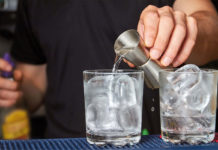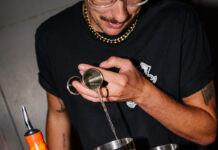Top food hygiene standards more crucial than ever before, firms say

VARIOUS trends come and go in the licensed trade, but the basic staples remain. Among these essential business practices are top hygiene standards, which in this age of social media have never been under higher scrutiny from customers.
Therefore, a comprehensive training programme is vital to ensure an outlet’s staff are all singing from the same hymn sheet, and doing all that they can to adhere to impeccable standards of cleanliness.
That’s the view of Andrea MacAulay, a tutor at the City of Glasgow College, who stressed the need for top hygiene standards.
“[It’s] incredibly important, as a business operation can be ruined overnight due to food poisoning and food contamination complaints,” she said.
Emphasising the importance of food hygiene, MacAulay highlighted the advantages of a comprehensive food hygiene training programme.
She said: “It can assist business protection, due diligence, business reputation and ensure customer safety.” But when it comes to training, MacAulay said operators should “identify the best fit” for their operation.
“Training providers can tailor training sessions quite easily to fit the needs of the individual business,” she said.
We recommend formal refresher training every three years.
Typically, the main areas which food hygiene training should cover include: cross-contamination, personal hygiene, correct food storage, allergen management, temperature control and cleaning, according to MacAulay.
Recommending formal refresher training every three years, MacAulay said food hygiene training should be ongoing and licensees “should be trained to a level to identify refresher training needs, especially if they have identified nonconformance by staff”.
As well as equipping staff with the correct knowledge, firms told SLTN that licensees must ensure they have the right tools at hand to keep their outlet up to code.
Jim Barr, area sales manager for Scotland at Electronic Temperature Instruments (ETI), the firm behind the Thermapen, stressed the importance of temperature checks.
“Taking and monitoring storage and cooking temperatures can be time consuming but to meet legal requirements such activities are critical,” he said.
“In a busy environment, speed, ease of use and accuracy are essential, especially where food preparation is concerned.
“With technological improvements, these aspects have improved, with instruments such as the Thermapen giving accurate temperature readings in three seconds, being robust and easy to use, and having anti-bacterial additives in the case to help prevent bacteria contamination.”
Taking a similar stance, MacAulay of the City of Glasgow College said that temperature probe thermometers are a “crucial” piece of equipment when it comes to monitoring food hygiene. Other food hygiene essentials she considers vital include disposable cloths and separate fridges, areas and equipment to avoid cross-contamination.
Echoing this view was Heather Beattie of cleaning product supplier Jantex, who stressed that “the importance of excellent hygiene is paramount in any commercial environment”.
She added that there are some other simple steps licensees can take to ensure they keep on top of the cleaning schedule in all areas of their outlet.
“The very process of designating colours to cleaning equipment in certain areas of an establishment can significantly reduce the spread of bacteria and prevents cleaning products being mixed up,” said
Beattie.



















